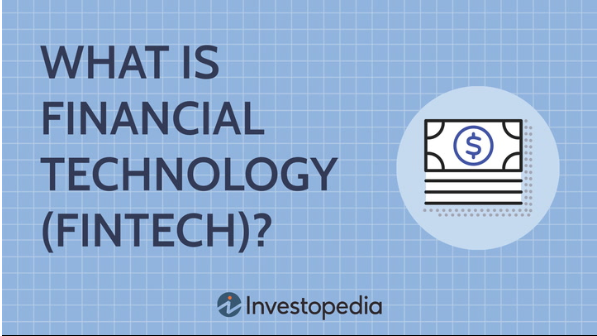In the fast-paced world of finance, technology has emerged as a game-changer, reshaping how investments are made, managed, and optimized. From artificial intelligence to blockchain and data analytics, this article explores the transformative impact of technology on modern investment practices, highlighting its benefits and future potential.
Technology in investment, modern investment practices, AI in finance, automation in trading, blockchain in investments, data analytics in finance, robo-advisors, algorithmic trading, cryptocurrency in investment
The Evolution of Investment Practices
The world of investment has come a long way from the days when stock exchanges were bustling halls filled with traders shouting orders and waving hands to signal buy or sell. Today, the investment landscape is increasingly shaped by technology, which has not only simplified processes but also introduced unprecedented efficiency, accuracy, and accessibility.

The Rise of Automation
One of the most significant impacts of technology on investment practices is the automation of traditionally manual tasks. Automation has transformed everything from order execution to portfolio management, reducing human error and increasing the speed at which trades are processed. For instance, algorithmic trading, which relies on complex mathematical models and predefined rules, now accounts for a substantial portion of global market transactions. These algorithms can analyze vast amounts of data, identify patterns, and execute trades in fractions of a second, ensuring that investors can capitalize on market opportunities with minimal delay.
The Emergence of AI-Powered Investing
Artificial intelligence (AI) has taken investment practices to an entirely new level. AI-driven platforms are capable of processing and analyzing massive datasets from diverse sources, including news articles, social media sentiment, and economic indicators, to predict market trends with remarkable precision. For example, hedge funds and institutional investors are increasingly using AI to identify undervalued assets and optimize portfolio performance.
Moreover, AI-powered robo-advisors have democratized investment management, making professional-grade financial advice accessible to individual investors of all income levels. These platforms use sophisticated algorithms to assess an investor's risk tolerance, financial goals, and time horizon, then recommend personalized investment strategies. This technology has not only lowered the barriers to entry for retail investors but also enabled them to make more informed decisions.
Blockchain and Decentralized Finance (DeFi)
Another groundbreaking innovation in the investment space is blockchain technology, which underpins cryptocurrencies and decentralized finance (DeFi). Blockchain offers a secure, transparent, and immutable ledger for recording transactions, eliminating the need for intermediaries like banks or brokers. This has opened up new avenues for investment, such as staking, yield farming, and trading cryptocurrencies.
DeFi platforms, built on blockchain, have disrupted traditional financial systems by offering innovative products like interest-bearing accounts, liquidity pools, and peer-to-peer lending. These platforms operate on a decentralized framework, giving users full control over their assets and enabling them to participate in the global financial ecosystem without relying on centralized institutions.
The Role of Data Analytics
In a world where data is king, technology has empowered investors with advanced data analytics tools that enable them to make data-driven decisions. Companies are now leveraging big data to uncover hidden patterns, predict market movements, and identify investment opportunities that might otherwise go unnoticed. For instance, natural language processing (NLP) techniques are being used to analyze news articles, earnings reports, and social media feeds to gauge market sentiment and anticipate price movements.
Moreover, predictive analytics tools are helping investors assess risk and return with greater accuracy. By analyzing historical data and simulating various scenarios, these tools can provide insights into how different investments might perform under varying market conditions. This level of precision is particularly valuable in volatile markets, where the ability to anticipate and mitigate risks can mean the difference between profit and loss.
The Future of Investment Practices
The integration of technology into investment practices is far from complete. As we look to the future, several emerging trends and innovations promise to further revolutionize the way investments are made and managed.
AI-Driven Portfolio Management
The role of AI in portfolio management is set to expand significantly in the coming years. Advanced AI systems will not only optimize asset allocation but also dynamically adjust portfolios in response to real-time market changes. For example, machine learning algorithms can analyze vast amounts of data to identify correlations between seemingly unrelated assets, enabling investors to diversify their portfolios more effectively.
Moreover, AI-powered platforms will continue to evolve, offering investors greater customization and personalization. Imagine a world where your investment strategy adjusts automatically based on changes in your financial situation, market conditions, or even your psychological state. This level of adaptability is not just a distant possibility—it is rapidly becoming a reality.
The Rise of Quantitative Investing
Quantitative investing, which relies on mathematical models and statistical methods to make investment decisions, is expected to gain even more prominence in the coming years. As technology advances, the ability to crunch vast amounts of data in real time will enable investors to identify and exploit market inefficiencies with greater precision.
Furthermore, the use of alternative data sources, such as satellite imagery, geolocation data, and even weather patterns, is likely to become more widespread. These unconventional datasets can provide insights into economic activity, consumer behavior, and corporate performance that are not captured by traditional financial metrics. By incorporating such data into their models, investors can gain a competitive edge and make more informed decisions.
Cybersecurity and Risk Management
As technology continues to play a central role in investment practices, the importance of cybersecurity cannot be overstated. The increasing reliance on digital platforms and the growing sophistication of cyber threats necessitate the development of advanced security measures to protect sensitive financial data.
In addition to safeguarding against cyberattacks, technology will also enhance risk management practices. By leveraging AI and predictive analytics, investors can better anticipate and mitigate risks, whether they stem from market volatility, geopolitical tensions, or regulatory changes.
The Democratization of Investment
One of the most exciting developments in modern investment practices is the democratization of access. Thanks to technology, individuals from all walks of life can now participate in the global financial markets with ease and convenience.
Mobile apps and online platforms have made it possible to trade stocks, cryptocurrencies, and other assets from the palm of your hand. Moreover, the rise of fractional shares and micro-investing platforms has allowed even those with limited capital to start building wealth. As technology continues to break down barriers, we can expect to see a more inclusive financial system where everyone, regardless of their financial status, has the opportunity to grow their wealth.
The Ethical Dimension of Technology in Investing
As technology becomes more deeply embedded in investment practices, ethical considerations will come to the forefront. Issues such as algorithmic bias, data privacy, and environmental, social, and governance (ESG) criteria will need to be carefully addressed.
For instance, AI algorithms must be designed to avoid inherent biases that could lead to unfair treatment of certain investors or the exclusion of specific markets. Additionally, as more investors prioritize sustainability and social responsibility, technology will play a key role in facilitating ESG investing by providing tools to measure and report on the environmental and social impact of investments.
Technology has undoubtedly transformed the investment landscape, offering investors tools and insights that were unimaginable just a few decades ago. From automating trades to enabling decentralized finance, the impact of technology is profound and far-reaching. As we look to the future, it is clear that technology will continue to drive innovation in investment practices, making them more efficient, accessible, and sustainable.
The convergence of technology and finance represents a new era of opportunity and challenge. While the benefits are immense, it is crucial to approach this transformation with a focus on ethics, security, and inclusivity. By embracing technology responsibly, we can unlock its full potential to create a more equitable and prosperous financial future for all.
